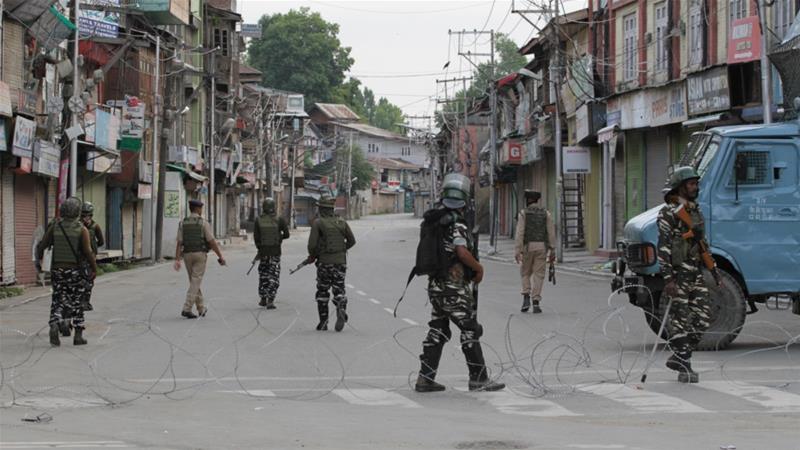Alwaght- Pakistan’s foreign minister Shah Mehmood Qureshi has warned that the situation in Kashmir could spark an “accidental war” between New Delhi and Islamabad, calling for a UN visit to the disputed region.
Shah Mehmood Qureshi issued the warning as he was speaking to journalists on the sidelines of the UN Human Rights Council in Geneva on Wednesday.
Qureshi said both Pakistan and India “understand the consequences of a conflict,” but raised the alarm that “you cannot rule out an accidental war.”
“If the situation persists... then anything is possible.”
Appealing to the Human Rights Council to launch an international investigation into the situation in Kashmir, Qureshi told reporters that he had spoken with UN High Commissioner for Human Rights Michelle Bachelet and invited her to visit both the Indian and Pakistani parts of the region.
“She should visit both places and report as objectively as she can so that the world knows what the true... situation is,” the Pakistani foreign minister said.
According to him, Bachelet had said she “was keen to visit.”
Speaking to reporters, Qureshi also ruled out the possibility of bilateral talks to resolve the tensions between the two sides over the Himalayan region.
“In this environment and with the mindset that we see in New Delhi today, I do not see any room for a bilateral engagement,” he said, adding that a multilateral forum or a third-party mediator would likely be needed.
New Delhi insists that the situation in Kashmir is an internal Indian affair, rejecting all international interference in the region.
Kashmir has been split between India and Pakistan since their partition from Britain in 1947. Both countries claim all of Kashmir and have fought three wars over the territory. India regularly accuses Pakistan of arming and training militants and allowing them to cross the restive frontier. Pakistan strongly denies the allegations.
In a surprise move on August 5, Indian Prime Minister Narendra Modi revoked Article 370 in the Indian constitution that granted Kashmir special autonomy. New Delhi deployed troops to the region to stymie potential protests, imposed severe restrictions on movement, and cut all telephone and internet services.
The controversial move not only infuriated India’s nuclear-armed Pakistan, which controls parts of Kashmir, but also sparked strong anger among the local population, who want their region to be merged with Pakistan.
Pakistan has called the decision “illegal” and has expelled the Indian ambassador to Islamabad.
The Indian premier has claimed that the decision was necessary for Kashmir’s economic development and helps stop “terrorism.”



























